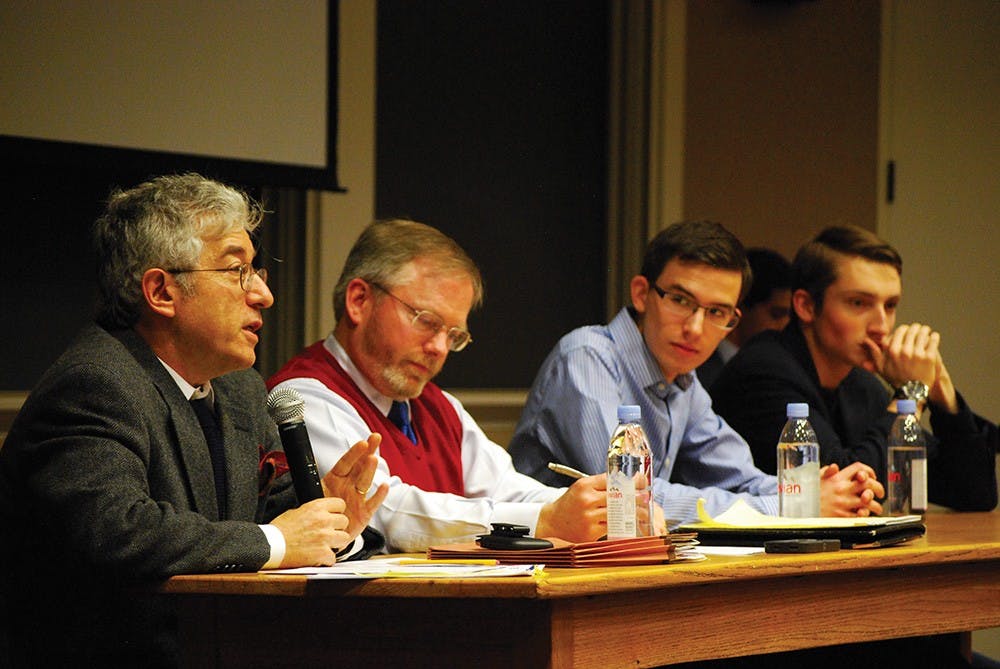A discussion panel addressing government responses to recent violent political protests in Ukraine was held Friday at Rouss-Robertson Hall. Fourth-year Commerce student Anna Buynova, the president of the Slavic Student Association, invited experts from the American Enterprise Institute and other organizations to offer commentary on the issue.
Panelist and third-year College student Mateo Diachok said the crisis began with underlying tensions between the European Union and Russia. Protests were incited when Ukrainian President Viktor Yanukovych broke his promise to sign a trade agreement with the European Union.
Initially peaceful demonstrations staged in Kiev, the Ukrainian capital, erupted into intense violence Feb. 18, after which nearly 100 were reported dead and many more injured.
Leon Aron, a resident scholar and director of Russian Studies at the American Enterprise Institute, said Russian President Vladimir Putin is backing Yanukovych.
“[It is] not a civil war, yet, but it is a revolution,” Aron said. “There is a moral rejection, moral incompatibility with this regime and the protesters.”
Diachok said the government reacted violently to the peaceful protesters, who would not leave the central square, Maidan, of the Ukrainian capital.
“The president has been using excessive force, and has not restricted the Special Forces he has sent in,” Diachok said. “[The government] originally used batons and rubber bullets, but now use live ammunition.”
Fourth-year College student Roman Gryniv invoked wisdom from President John F. Kennedy in emphasizing the gravity of the current situation.
“If you ignore a peaceful revolution, you will be faced with a violent one,” Gryniv paraphrased.
The protest has already grown from a few thousand to almost half a million people, Diachok said.
James Greene, a senior advisor for United States-Ukraine Business Council and president at Effective Engagement Strategies, said American and western freedoms set an example for Ukrainian citizens.
“We have inspired the people of Maidan, if not our values then our institutions,” Greene said. “What is inspiring is our society. … They want to live like us, they want to study like [us], they want the freedom to choose what they do afterwards.”
Greene criticized American inaction in the present conflict.
“The regime was vulnerable to sanction,” Greene said, “and we absolutely refused to do it.”
Diachok said Yanukovych’s dealings with the Russian government and Russian business leaders undermined his credibility in the eyes of Ukrainian citizens, framing his intentions as personally beneficial rather than beneficial for the Ukrainian economy as a whole.
“There’s also been an enormous amount of blatant corruption that involves billions of dollars,” Diachok said. “[Citizens] were aware that Yanukovych wasn’t a true democratic leader in that he was taking dirty money from Ukrainian and Russian oligarchs.”
In an effort to address the ongoing riots, Yanukovych signed a tentative peace treaty, calling for new presidential elections in the fall of 2014. Aron said the Yanukovych was unlikely to win an election.
“I think any educated person should care about what is happening in the world and go beyond reading the headlines,” Buynova said. “[University students should be] digging deeper and seeing the different perspectives.”







